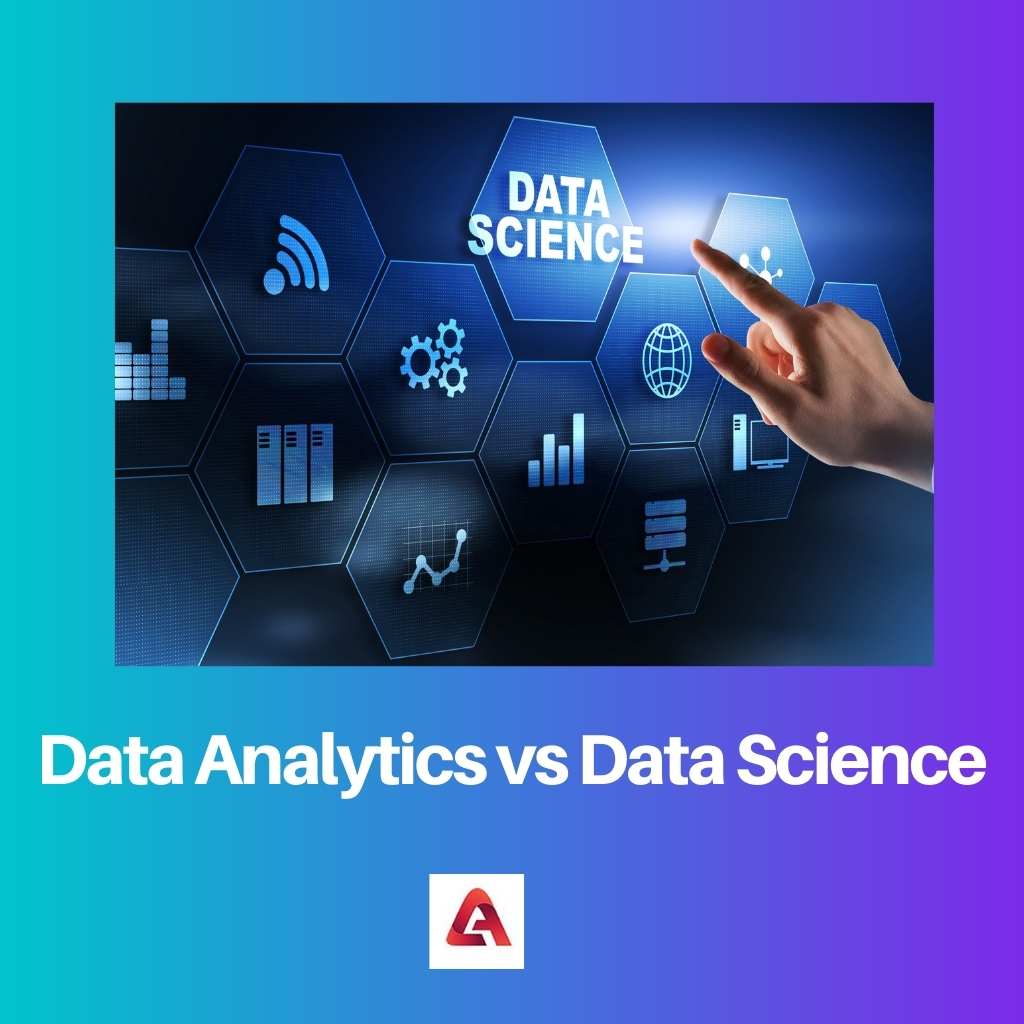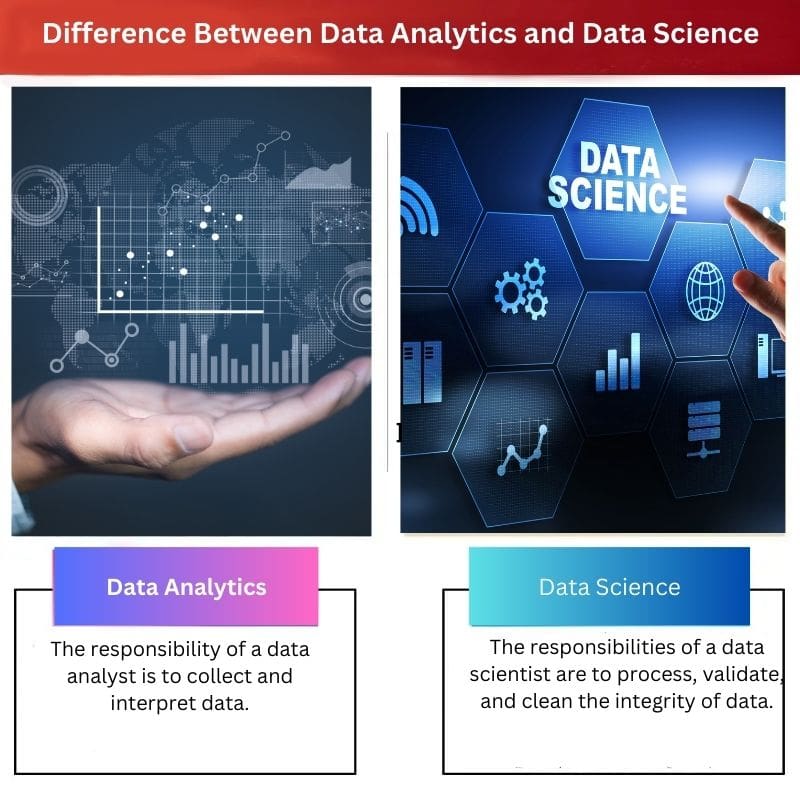Data Analytics and Data Science are blooming careers. They both use data to analyze and perform many computational tasks.
Data Analytics does not focus much on the coding part, but coding is essential when it comes to data science.
Not only coding is important, but they should also have a strong grip on mathematics, algorithms, data structures, and programming languages.
Key Takeaways
- Data Analytics focuses on processing and analyzing data to extract insights, while Data Science involves the entire data life cycle, including data collection, storage, processing, and analysis.
- Data Science utilizes advanced algorithms, machine learning, and artificial intelligence to make predictions and automate decision-making.
- Data Analysts have data visualization and statistical analysis expertise, while Data Scientists require a broader skill set, including programming and machine learning.
Data Analytics vs Data Science
Data analytics is the process of examining, cleaning, transforming, and modeling data in order to discover useful information, draw conclusions and support decision-making. Data science encompasses a wider range of techniques and tools to extract insights and build models from data.

Data analytics is used for analyzing raw data to make conclusions about that information. They use different tools and techniques to help organizations to make decisions.
There are many types of data analytics available called descriptive, prescriptive, predictive, and diagnostic analytics. Each type has a specific purpose, and it depends on the question that a data analyst has to answer.
Data science is a field of study that includes programming skills, statistics, expertise, and knowledge of mathematics to get insight from data.
It is a field of study that combines statistics and mathematics to get meaningful insights from data. It provides a large complex of data.
Some of the features of data science include flexible feature columns, parallel network training, layered components, and event logger.
Comparison Table
| Parameters of Comparison | Data Analytics | Data Science |
|---|---|---|
| Skillset | BI tools and intermediate statistics. | Data modeling and predictive analytics. |
| Goals | It uses existing information for uncovering actionable data. | It discovers new questions to drive innovation. |
| Scope | Micro | Macro |
| Application areas | It is applied in the gaming and travel sectors. | It is applied in internet research and digital advertisements. |
| Languages | Tableau Public and Apache Spark. | Python and SQL. |
What is Data Analytics?
It helps organizations and individuals make sense of data. They analyze raw data for trends and insights.
Some of the top skills that a data analyst should have are data visualization, Matlab, python, machine learning, data cleaning, R language, SQL and NoSQL, linear algebra, and calculus.
Learning data analytics won’t become a challenge if you start with the right practice. Start by learning the basics of R programming.
Then interact with the data using a structured query language. Join an excel class and brush up on your excel skills. And the final step is to get a refresher in linear algebra or statistics. Coding is not a necessary part of data analytics.
They are not expected to code in their daily duties. Simple data analytics functions like google analytics do not require writing code. It is a very good career. People can also expect a good amount of salary in even junior positions.
Even though it does not require much coding, it is a stressful job. There are multiple reasons available, but the thing that is high on the list is the large volume of work.
Next is the work request from management levels and multiple sources. People can learn the fundamental of data analytics on their own.
But it would be good if you have a degree so that you can build skills and networks with professionals in that particular field.
What is Data Science?
Data scientists examine which question needs to be answered and the place to find the related data. It is an interdisciplinary field. They use analytical skills.
It is a domain where advanced analytical strategies are used. It uses scientific principles to yank worthwhile knowledge.
It uses the gathered data for business decision-making, strategic plans, and different benefits. It is one of the emerging domains of science as its beach has been spread in almost every occupation.
Some of the advantages of data science for your business are increased business predictability, helping interpret complex data, providing real-time intelligence, improving data security, favoring the marketing and sales era, stimulating the decision-making process, and personalizing the customer experience.
They are the recent growing breed of specialists, approving in need today. A data scientist can assist with the identification of key groups with exactness.
It is used in various industries like finance, transport, education, banking, manufacturing, and e-commerce. This leads to several data science applications related to that field.
Experts term that data is the future oil and analytics is the engine. Within some years, it will be in high demand, and the growth will be faster.
It is a future job as it is one of the thriving fields in all kinds of industries. For people who want to go to the research field, then data scient is the perfect option for them.

Main Differences Between Data Analytics and Data Science
- A data analytics person must adapt to data visualization. On the other hand, a data science person must adapt to database management, machine learning, and data wrangling.
- The responsibility of a data analyst is to collect and interpret data. On the other hand, the responsibilities of a data scientist are to process, validate, and clean the integrity of data.
- Data analytics is applied in the gaming and travel sectors. On the other hand, data science is applied in internet research and digital advertisements.
- The languages used in data analytics are Tableau Public and Apache Spark. On the other hand, the language used for data science in Python and SQL.
- The goal of data analytics is it uses existing information for uncovering actionable data. On the other hand, the goal of data science is it discovers new questions to drive innovation.





